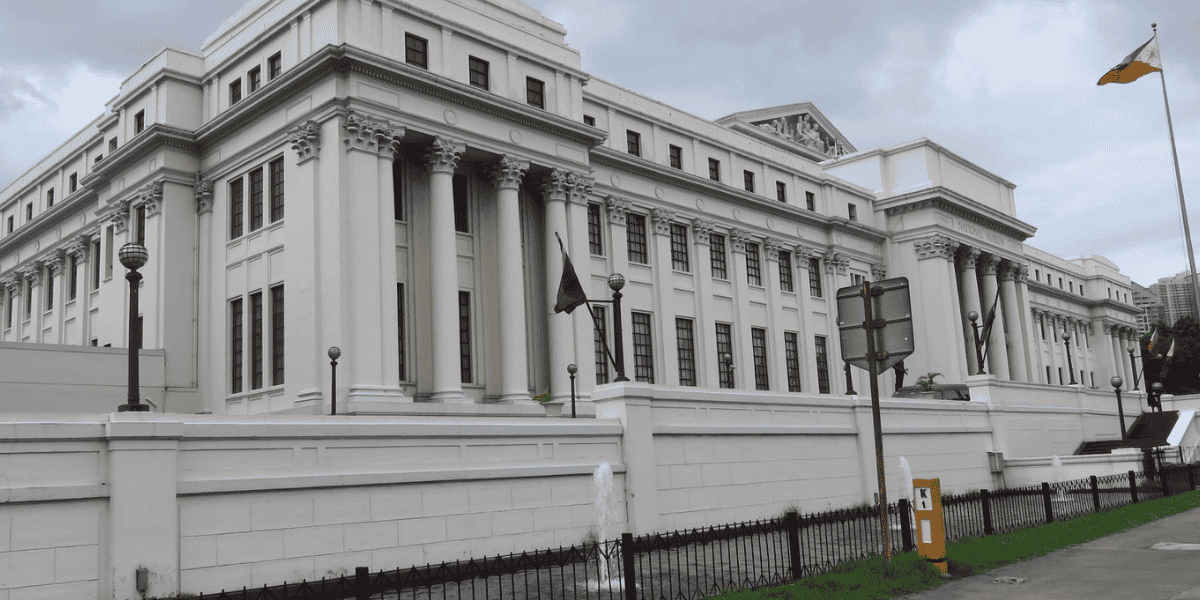The Philippines’ Department of Finance announced plans to present its 2025 budget proposal to the Senate on 27 August 2024. This proposal emphasises digitalization to enhance the efficiency of tax administration.
Finance Secretary Ralph G. Recto has underscored to the members of the Senate that the Department of Finance (DOF)’s 2025 budget proposal prioritises digitalisation for efficient tax administration and public service, and assured that it adheres to the highest standards of fiscal discipline to deliver economic prosperity for Filipinos.
“Our proposed budget every year is always a faithful reflection of our strategic priorities under the Bagong Pilipinas brand of governance. The items discussed today are part and parcel of a larger effort to improve tax administration efficiency, deliver more responsive public service delivery, and provide economic prosperity for the Filipino people,” he added.
Guided by the Medium-Term Fiscal Program, the DOF ensures that the government attains its revenue targets annually to reduce deficit and debt gradually in a realistic manner, while creating more jobs, increasing people’s incomes, and decreasing poverty in the process.
In 2025, the agency is tasked to fund the proposed PHP 6.35-trillion 2025 national budget, of which only PHP 4.64 trillion are supportable by revenues.
The DOF’s proposed for 2025 is 20.8% higher than the 2024 General Appropriations Act (GAA) level but represents only 0.5% of the government’s total proposed 2025 national budget.
Under this, the agency’s New General Appropriations constitute the largest portion amounting to PHP 29.0 billion to support the DOF’s core operations and priority programs.
This is in line with the DOF’s key priorities to ramp-up digitalization to enhance revenue administration by the Bureau of Customs (BIR), customs enhancement by the Bureau of Customs (BOC), better financial asset and debt management by the Bureau of the Treasury (BTr), and improved local finance administration by the Bureau of Local Government Finance (BLGF).
Meanwhile, a PHP 1.0 billion-allocation under the Special Purpose Funds has been included for the replenishment of the People’s Survival Fund (PSF) which will support numerous climate adaptation projects of local communities.
In terms of allocation, 41.4% of the proposed budget is allocated to Personnel Services, 37.9% to Maintenance and Other Operating Expenses (MOOE), and 20.6% to Capital Outlays.
“This is in line with our commitment to prioritise workforce development and infrastructure improvements like digitalization. In fact, we are making significant digital transformation investments across agencies,” Secretary Recto said.
Specifically, the BIR, the BOC, and the Insurance Commission (IC) lead the charge in digitalization with a combined amount of PHP 4.20 billion, while other agencies are allotted around PHP 600 million.
“These investments are aimed at significantly enhancing taxpayer experience, streamlining trade processes, and improving fiscal transparency,” the Finance Chief said.
Notably, the BIR will receive the largest share of the budget, totaling PHP 17.68 billion or 54.4% of the total DOF proposed budget.
The BOC has a proposed budget of PHP 5.66 billion (17.4% share), a meagre amount compared to its target collection of PHP 1.06 trillion next year.
The other DOF offices have the following proposed budgets:
- IC, PHP 1.0 billion;
- DOF – Office of the Secretary, PHP 491.25 million;
- BLGF, PHP 433.66 million;
- National Tax Research Center (NTRC), PHP 144.11 million;
- Privatisation and Management Office (PMO), PHP 111.06 million; and
- Central Board of Assessment Appeals (CBAA), PHP 18.05 million.
The Finance Chief assured the Senate with the DOF’s excellent budget utilisation track record.
In the first semester of 2024, the DOF has already achieved an obligation rate of 70%, translating to PHP 40.85 billion in obligations from its total allotment of PHP 58.36 billion.
Secretary Recto stated that the DOF ranks as the fourth highest among government agencies in terms of obligation rates, which is well above the entire government’s average obligation rate of 65.4%.
Moreover, the disbursement rate reached a robust 90%, with PHP 36.87 billion expended during this period.
In 2023 and for the third year in a row, the DOF also received an Unmodified or Unqualified Opinion from the Commission on Audit (COA).
This confirms that the DOF’s financial statements adhere to the applicable financial reporting framework that ensures good governance, transparency, and accountability.
















